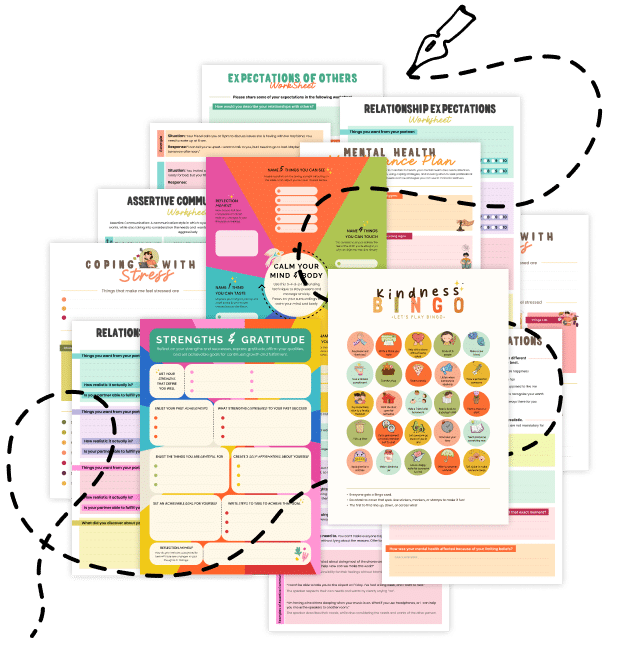20 Things You Should Know About Inference Blindness
Enhance your critical thinking and decision-making by understanding Inference Blindness—what it is, why it matters, and how it can lead you to overlook important conclusions in everyday information. Discover how recognizing and overcoming inference blindness can improve your reasoning and help you draw more accurate conclusions.
1. What Is Inference Blindness?
Inference Blindness is the tendency to fail to draw logical conclusions or connections between pieces of information, even when the data clearly implies them.
2. Missing the Obvious Links
Often, key relationships in data are overlooked because the mind doesn’t automatically infer them, leading to incomplete understanding.
3. A Common Cognitive Bias
It’s a cognitive bias that affects how we interpret information, sometimes causing us to accept facts at face value without deeper analysis.
4. Impact on Decision-Making
Failing to make necessary inferences can lead to poor decisions, as critical information is ignored or misinterpreted.
5. Overreliance on Surface Details
Inference blindness can occur when you focus on explicit details, missing the implicit connections that complete the picture.
6. In Everyday Reasoning
It’s not just a problem in academic or scientific settings—it affects everyday reasoning, from news consumption to personal judgments.
7. Contributing Factors
Factors such as cognitive overload, stress, or distractions can increase the likelihood of inference blindness.
8. Relation to Other Biases
Inference blindness is often linked with confirmation bias, where you might ignore contradictory evidence that doesn’t fit your preconceived notions.
9. The Role of Expertise
Experts can sometimes fall prey to inference blindness when they rely too heavily on established frameworks and overlook new patterns.
10. Effects on Learning
In educational settings, inference blindness may hinder the ability to integrate new knowledge with what is already known.
11. Importance in Scientific Research
It can lead to misinterpretations of data and flawed conclusions in research if critical inferences are not drawn.
12. Overcoming Simplistic Thinking
By actively questioning what’s implied by the data, you can reduce the risk of missing important insights.
13. Enhancing Metacognition
Developing an awareness of your own thought processes is key to identifying and correcting inference blindness.
14. The Benefit of Peer Review
Discussing ideas with others can help surface inferences you might have missed, broadening your perspective.
15. Encouraging Critical Questions
Ask yourself what connections or conclusions the data suggests that aren’t immediately obvious.
16. Tools for Better Reasoning
Structured frameworks, checklists, and critical thinking exercises can help train your brain to make necessary inferences.
17. Importance of Context
Understanding the broader context can often reveal the missing links that lead to proper inferences.
18. Overcoming Overconfidence
Recognize that even experts can miss subtle inferences, so remain open to questioning your initial interpretations.
19. Continuous Practice
Improving your ability to infer correctly is a skill that improves with practice, reflection, and learning from feedback.
20. Related Topics to Explore
- Inference Obstruction – Learn how barriers to drawing inferences can impact decision-making.
- Metacognitive Monitoring – Enhance your awareness of your thought processes to catch overlooked inferences.
- Heuristic Traps – Discover common mental shortcuts that may contribute to inference blindness.
- Cognitive Load Theory – Understand how managing mental workload can free up capacity for better reasoning.
- Self-Talk Restructuring – Explore strategies to reframe your inner dialogue to promote more analytical thinking.
Quick Tips to Boost Your Awareness of Inference Blindness
- Ask Probing Questions: Regularly challenge yourself with questions like “What does this data imply?” or “What might I be missing here?”
- Engage in Peer Discussions: Collaborate with others to explore different interpretations and uncover hidden inferences.
- Use Structured Analysis: Employ checklists or decision frameworks to systematically evaluate the relationships in information.
- Reflect on Past Decisions: Review previous instances where you might have overlooked key inferences and learn from them.
- Practice Critical Thinking: Regularly engage in exercises that stimulate deeper analysis, such as reading complex texts or solving logic puzzles.
Embrace these insights and tips to harness the power of Inference Blindness awareness, empowering you to draw clearer conclusions and make more informed decisions in every aspect of your life!


